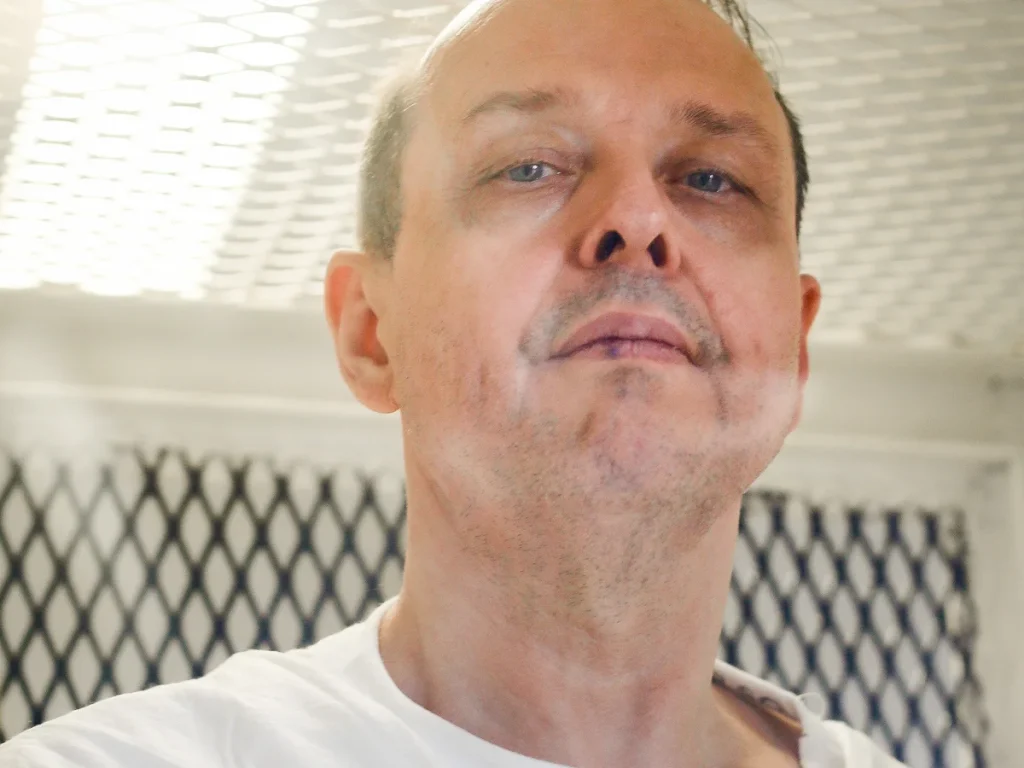The US state of Texas is preparing to execute Robert Roberson, an autistic man, this Thursday, despite his murder conviction being based on what his legal team claims was a misdiagnosis of “shaken baby syndrome.” Roberson, 57, is set to face lethal injection at the Huntsville state penitentiary for the death of his two-year-old daughter, Nikki, in February 2002.
Roberson’s case has attracted significant attention from advocacy groups, including the Innocence Project, and high-profile figures such as best-selling novelist John Grisham, Texas lawmakers, and medical experts. Even Brian Wharton, the former chief detective who led the investigation and secured Roberson’s conviction, is now among those seeking to halt the execution.
“Knowing everything that I know now, I am firmly convinced that Robert is an innocent man,” Wharton said during a recent press conference organised by Roberson’s supporters. “The system failed Robert.”
Grisham, author of The Firm and A Time to Kill, also attended the event. Speaking as a board member of the Innocence Project, he expressed his concerns over wrongful convictions. “What’s amazing about Robert’s case is that there was no crime,” Grisham stated, noting how wrongful convictions have put many innocent people behind bars. The Innocence Project has helped secure the release of over 250 wrongly imprisoned individuals since its founding in 1992.

Roberson’s lawyers argue that the initial diagnosis of shaken baby syndrome by the hospital where his daughter died was incorrect. They claim her death was due to pneumonia, exacerbated by a medication error. Wharton, who is now a Methodist minister, said the hospital’s initial conclusion that the toddler had been violently shaken guided the investigation and led to the exclusion of other potential causes.
Roberson’s lawyers point out that if the execution proceeds, he would be the first person in the US to be executed based on a shaken baby syndrome conviction. The American Academy of Pediatrics now classifies such cases as abusive head trauma, and Kate Judson of the Center for Integrity in Forensic Sciences argued that evidence-based science has roundly debunked the theory presented at Roberson’s trial.
Judson added that more than 30 parents and caregivers across 18 US states have been exonerated after being wrongfully convicted based on unscientific shaken baby testimony. Roberson’s attorney, Gretchen Sween, also highlighted his autism spectrum disorder, which went undiagnosed until 2018. She argued that his condition affected his behaviour during the medical crisis, causing him to shut down. This reaction was misinterpreted as indifference, leading to his arrest and conviction.
Despite the mounting evidence, the Texas Court of Criminal Appeals recently denied an emergency motion for a stay of execution and a retrial. Roberson’s legal team has filed another appeal, to be heard in a different state court on Tuesday, and has also petitioned Texas Governor Greg Abbott and the Texas Board of Pardons and Paroles for clemency.
A bipartisan group of 86 Texas state lawmakers has urged the governor and the parole board to grant clemency, citing voluminous new scientific evidence that casts doubt on Roberson’s guilt.
This year, there have been 19 executions in the United States, including the recent execution of Marcellus Williams in Missouri, another case that the Innocence Project took up due to questions about the convict’s guilt. Currently, 23 US states have abolished the death penalty, and six others have moratoriums in place, including Arizona, California, Ohio, Oregon, Pennsylvania, and Tennessee.


